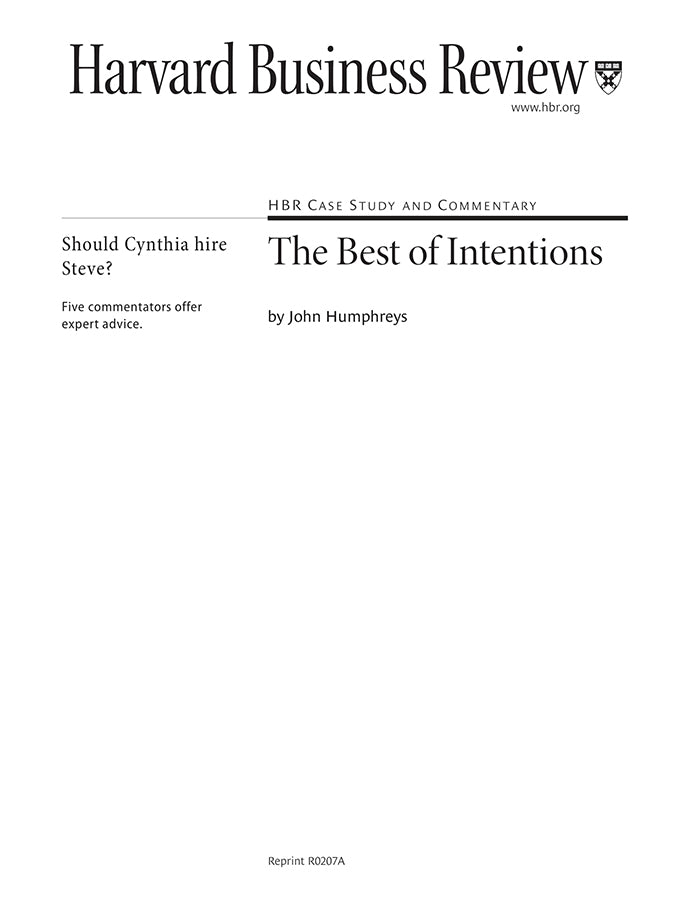Best of Intentions (HBR Case Study and Commentary)
受取状況を読み込めませんでした
THIS CASE STUDY INCLUDES BOTH THE CASE AND THE COMMENTARY. FOR TEACHING PURPOSES, THE REPRINT IS ALSO AVAILABLE IN TWO OTHER VERSIONS: CASE STUDY-ONLY, Reprint R0207X, AND COMMENTARY-ONLY, Reprint R0207Z. Cynthia Mitchell has finally gotten a plum management opportunity at AgFunds, a Houston-based company that provides financial services to farmers and farmer-owned cooperatives. Peter Jones, regional vice president, has recruited Cynthia to revive the Arkansas district, which has been losing customers for 15 years. The sales force there isn't bad; it's just been poorly managed by an indifferent boss for too long. Still, Cynthia knows she'll need at least one powerhouse sales rep to get things back on track. She thinks she's found that person in Steve Ripley, this year's top trainee at AgFunds, who is inexplicably available three months after the training period is over. In the interview, he proves to be ambitious, intelligent, and personable. But several of Cynthia's colleagues suggest that Steve might not be the best fit for the job: He's a black man in a company whose customer base is mostly conservative and white. Uncomfortably recalling her own experiences at AgFunds--she'd been rejected for a position in a territory that was deemed too unfriendly to female sales representatives--Cynthia addresses the issue with Peter. The mostly white farmers in Cynthia's district just won't trust their books to a black professional, Peter explains. And other minority professionals at AgFunds have derailed their careers trying to make inroads in unfriendly districts. "Steve deserves to start out in a more hospitable district. Once the right opportunity opens up, he'll be hired, and he'll do brilliantly," Peter reassures Cynthia, but she's still uncertain. Should she ignore her customers' biases and hire Steve, possibly setting him up to fail? Or would it be better to let Steve wait for a friendlier opportunity? In R0207A and R0207Z, experts David A. Thomas, Herman Morris, Jr., Daryl Koehn, Alicia Leung, and Glenn C. Loury comment on this fictional case study.
【書誌情報】
ページ数:7ページ
サイズ:A4
商品番号:HBSP-R0207A
発行日:2002/7/1
登録日:2011/7/29


